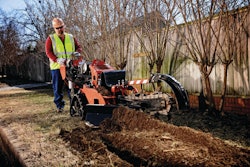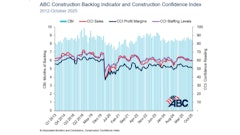
Collections management can be difficult in any industry, but all of the payment peculiarities that already exist in the construction industry mean that you’re going to have your work cut out for you.
No one enjoys making collection calls. But if you play a key admin role in a small- to medium-sized business, chances are you’re going to have to make some collection calls from time to time. And just like other necessary yet still odious tasks that are a regular part of even the best of jobs, it’s easy to get behind in your collections effort.
That’s why we have some tips and good habits to not only make your collections process easier and more effective but to also help you prevent the issue from getting out of hand.
1. Schedule a regular time
Set aside a dedicated time to work on your collections and keep that schedule. The time and frequency you decide on will largely be determined by scale of your problem and your tolerance for work that you find intolerable. If you’ve got a big A/R problem on your hands, you might want to work on your collections list daily. A more modest total of outstanding late payments might necessitate your attention just once or twice a week.
By breaking up the total collections issue into smaller chunks, the work is easier to digest.
2. Do your research before making the call
Have all your ducks in a row. Make sure you do all of the necessary research before you make that call, and have all of the info you need readily accessible during the call in case you need to refer to it. There’s nothing worse than going to someone you thought was trying to get out of paying their bill only to find out that they had already made arrangements with someone else in your office.
Moreover, knowledge is power, and having a complete grasp of the facts and history of the issue in question during a collection call will help you to prevent the delinquent customer from implying that, since you didn’t know about some minor detail, then you certainly can’t know what you’re talking about.
3. Remain calm
Try to be positive. Watch your manners. Avoid confrontations and try not to be goaded into a fight. All easier said than done by the way, but good advice nonetheless.
There is a small HVAC contractor in Alabama whose office manager is one of the best at collections that we know of. Her advice? Pretend that the delinquent customer on the other end of the line is actually your little old, sweet grandmother. If you can behave on the call in a way that’s good enough for your grandma, chances are it will be good enough for your delinquent customer, too.
4. Take payment right over the phone
Offer to take a credit card payment over the phone right then and there. The worn out “Ill put a check in the mail today” trope is letting them off too easily. This seems obvious, but offering to take a credit card payment — and then asking for their credit card info — can work wonders.
5. Be firm but give options
Try to be as firm as possible, but also give your customer options. While the best outcome of the call is always to get a payment in full before you hang up the phone, sometimes you have to get a little creative to make things work.
One of the most common excuses for late payments that we hear in construction is your customer can’t pay you until they get paid for some other project that’s tying up their cash flow. If you hear that, simply ask them when they’re going to get paid, then politely but firmly tell them that you will call them back that same day.
Depending on the customer and the amount owed, you could also try to create a payment plan; but if you do, try to at least have the payments as “automated” as possible, even if that means more work for you in the short term. (i.e., agree on a monthly amount that your customer is going to pay, take their credit card info and then tell them that you’re going to charge that same amount on the same day each month until the debt is satisfied. A pain in the butt for you, sure, but better than a new bad debt you have to write off).
While we believe the steps we outlined above are helpful, the best advice we can think of really just comes down to two words: be proactive.
And one of the easiest and most effective ways to proactively secure your future payments in the construction industry is to send preliminary notices on each and every project, even when it’s not required. The old adage about an ounce of prevention — in the form of a preliminary notice — is proven correct once again.
Peter is zlien's Content Manager. He works to create useful content that makes the mechanics lien and construction payment process simple, easy, and fair for everyone in the construction industry.



















